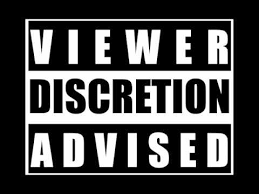Wolk v Wolk 2021 BCSC 1881 applied trite law re that children adopted out to another family are not descendants or issue of their biological parents on an intestacy.
Wolk applied Atrill Estate 2018 BCSC 350 and reviewed the now well settled principle that if a child is adopted out by another family, it is for all purposes and that child is no longer considered to be a descendant or issue of the biological parent, and becomes the child of the adopted parent for inheritance purposes.
The Adoption Act, R.S.B.C.1996, c. 5, s. 37 provides that on the making of an adoption order the pre-adoption parent ceases to have any parental rights or obligations to the child who is the subject of the order.
S. 3 of WESA makes it clear that a child who was adopted out is not entitled to the estate of the pre-adoption parent on an intestacy.
[13] In Boer v. Mikaloff, 2017 BCSC 21, Funt J. held that a child who has been adopted out has no claim on his or her pre-adoption family in the event of an intestacy.
Subsection 37(1) of the Adoption Act provides that when an adoption order is made, “the child becomes the child of the adoptive parent” and “the adoptive parent becomes the parent of the child”. Section 1 of the Adoption Act defines a “child” as “an unmarried person under 19 years of age”.
The Court of Appeal in Clayton v. Markolefas, 2002 BCCA 435, addressed whether an adopted child was “issue” of her birth father enabling her to be entitled to a portion of her birth father’s intestate estate. The Court considered in detail, s. 37 of the Adoption Act as it then read.
It will be seen that s. 37(1) [Adoption Act] retains the concept that upon the making of the adoption order the child becomes the child of the adoptive parent and the adoptive parent becomes the parent of that child. It goes on to provide, subject to an exception which has no application here, that the birth parents cease to have any parental rights or obligations with respect to the child.
Section 37(1)(c) – Because the birth parents cease to have any parental rights or obligations, it must follow that the child ceases to have any rights against the birth parents other than those defined in s. 37(6), i.e., rights which vested in the child before the date of the adoption order. The existence of s. 37(6) is inconsistent with a legislative intention to allow other rights of the child against the birth parent to survive the adoption order.
Section 37(6) [should read 37(5)] of the new Act, which provides that the family relationships of one person to another are to be determined in accordance with s.37, also has a clear bearing on the present issue. The question whether a person is “issue” of another person is a matter of family relationships. The clear effect of s.37(1) is that the adoptive child becomes the child of the adoptive parent. From that it follows that all parental obligations fall upon the adoptive parents. It can therefore be said of the present provisions, as Seaton J.A. said of s. 11 of the former Act:
The thrust of these provisions is to move the child from one family to another family and make it a child of the new family and no longer a child of the old family.
Unless an exception applies, the effect of s. 37(5) of the Adoption Act is that the plaintiff, upon adoption, became the child of his adoptive parents and his adoptive parents became his parents. The plaintiff was no longer a child of his birth mother. Such would be the “family relationships” as determined by s. 37 of the Adoption Act.
Section 3(2)(a) of WESA serves to confirm that an adopted child is not within the family relationships of his or her birth parents for the purposes of WESA. Section 3(2)(a) provides that an adopted child “is not entitled to the estate of his or her own pre-adoption parent except through the will of the pre-adoption parent”. In other words, an adopted child relative to a pre-adoption parent will-maker is in the same position as a non-family member. The only exception is found in s. 3(3) of WESA which provides that the adoption of “a child by the spouse of a pre-adoption parent does not terminate the relationship of parent and child between the child and the pre-adoption parent for purposes of succession…”
See Also Clayon v Markolefas 2002 BCCA 435 provides some history to this line of case authority:
“The Adoption Act of 1960 became, in the 1979 revision, R.S.B.C. 1979, c. 4. There was no material change in the Adoption Act from 1960 until the 1979 Act was repealed and replaced by the Adoption Act, R.S.B.C. 1996, c. 5. It was settled law until 1996 that an adopted child was not “issue” of his or her natural parents for the purpose of intestate succession. The sole question is whether the 1996 amendment leads to a different result. The relevant provisions of the Estate Administration Act were in effect during the whole of the period from 1960 to 1996. There were no amendments to those sections in that period.
[4] The earliest case holding that there are no rights of intestate succession between an adopted child and his or her birth parent was Re Jensen (1964), 47 D.L.R. (2d) 630 (B.C.S.C.), The reasoning in that case was approved and applied by this Court in Mernickle v. Westaway (1986), 1 B.C.L.R. (2d) 267. Those authorities rested entirely upon the effect of these provisions of the former Act:
- (1) For all purposes an adopted child becomes on adoption the child of the adopting parent, and the adopting parent becomes the parent of the child, as if the child had been born to that parent in lawful wedlock.
(2) For all purposes an adopted child ceases on adoption to be the child of his existing parents (whether his natural parents or his adopting parents under a previous adoption), and the existing parents of the adopted child cease to be his parents.
(3) The relationship to one another of all persons (whether the adopted person, the adopting parents, the natural parents, or any other persons) shall be determined in accordance with subsections (1) and (2).”



